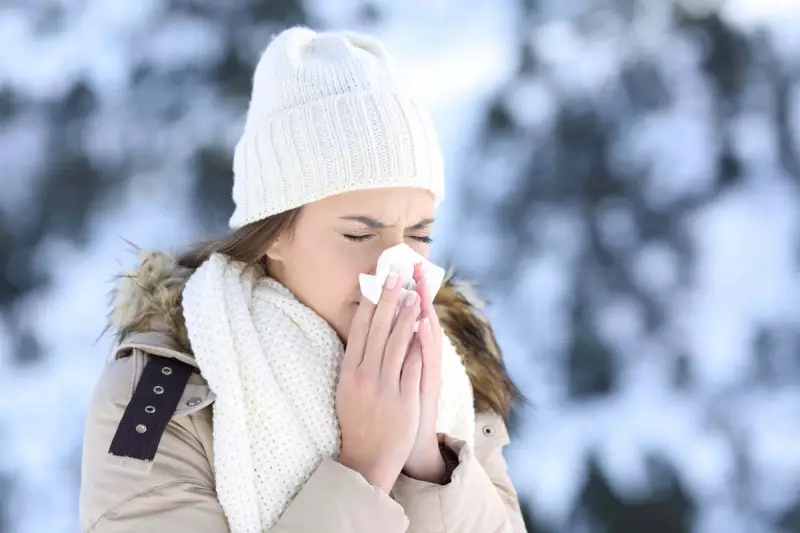
With a sharp cold snap gripping the nation, plummeting temperatures are doing more than just prompting us to reach for thicker coats. The chilly conditions are taking a significant and noticeable toll on our bodies, exacerbating a range of health issues from persistent coughs to aching joints.
The Physical Toll of Cold Weather
We spoke with Dr Claire Agathou, a co-founding GP at the A–Z General Practice in The Wellington Hospital, part of HCA Healthcare UK, to understand the specific ways winter weather intensifies physical ailments. She highlighted five key areas where the cold has a more profound effect and provided essential advice for staying well.
1. Your Immune System Under Siege
Cold weather creates an ideal environment for viruses to thrive and spread. "Viruses can survive and circulate more easily in the cold, dry air," Dr Agathou explains. "We also spend more time indoors, which increases close contact and transmission rates."
She further notes that cold air can weaken our first line of defence by slowing down the protective mucus and tiny hairs, called cilia, in the nose. Additionally, sudden temperature drops can increase stress hormones, temporarily reducing a person's immunity. This combination leads to a marked increase in coughs, flu, and respiratory infections during the winter months.
2. Strain on Your Heart and Circulation
The cold has a direct impact on your cardiovascular system. "Cold weather causes vasoconstriction, which is when the blood vessels narrow, especially in the hands, feet, and skin," says Dr Agathou. This narrowing can increase blood pressure, elevate heart rate, and force the heart to work harder.
She adds that people with a history of heart attacks, hypertension, heart disease, diabetes, and smokers are particularly vulnerable to these potentially dangerous effects.
3. Respiratory Distress and Tightness
For those with existing breathing difficulties, winter can be especially challenging. "Cold, dry air can irritate the airways and trigger bronchospasm, which is the sudden tightening of the airway muscles," Dr Agathou states. This can cause a tight chest, breathlessness, or coughing fits, particularly when moving quickly from a warm environment into the cold.
Individuals with pre-existing conditions like asthma or chronic obstructive pulmonary disease (COPD) are at higher risk, as their airways are already inflamed. Exposure to cold air can trigger 'airway hyper-reactivity', leading to increased wheezing, coughing, and breathlessness during the colder months.
Protecting Your Skin and Joints
4. Skin Irritation and Flare-ups
Winter conditions are a classic trigger for skin complaints. "The cold air is dry, indoor heating is dry, and with that combination, you get reduced skin barrier function and more water loss," explains Dr Agathou. This leads to irritated patches of inflamed skin, causing flare-ups of eczema. Even those without severe eczema can experience very dry, itchy, and inflamed skin.
Cold temperatures are also a common trigger for Raynaud's phenomenon, where small blood vessels in the fingers and toes overreact to the cold, temporarily narrowing. This can cause colour changes—from white to blue to red—and be accompanied by throbbing and pins and needles as blood flow returns.
5. Increased Joint Pain and Stiffness
Many people report that their arthritis or chronic pain feels worse in the winter. "One reason is that blood flow is reduced to the muscles and soft tissue in the cold, so we can generally get more stiff," says Dr Agathou. She also points out that people tend to be less active in winter, and inactive days can increase joint pain.
Furthermore, cold weather can make nerve endings more sensitive, which amplifies pain signals, making discomfort feel more intense for those with conditions like osteoarthritis or rheumatoid arthritis.
Expert Tips for a Healthier Winter
Dr Agathou offers her top practical advice for staying warm and healthy during the cold spell:
Wrap up warm: "It's really important to keep warm and layer properly. Multiple thin layers trap heat better than thick ones." She also advises keeping your head and hands covered, as we lose significant heat from these areas.
Manage medications: "If you've got a respiratory condition, don't go out anywhere without your prescribed inhalers."
Stay hydrated and eat well: Hydration supports immunity and energy, so keep drinking even if you don't feel as thirsty. Prioritise good nutrition with warm meals rich in protein and vitamin D.
Keep moving: "Movement is important for circulation, immunity, and joint stiffness." However, those with respiratory conditions should be cautious about exercising outdoors in extreme cold.
Maintain a warm home: Try to keep your house at least 18 degrees Celsius, especially if you are elderly.
Check for vaccinations: "Check with your GP to see if you are eligible for the flu and Covid boosters, especially if you are in a vulnerable group."






